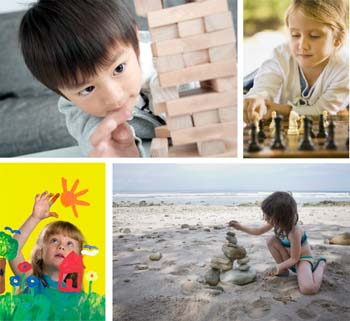Dec 28, 2025
Dec 28, 2025
by Radha Joshi
 Imagine yourself in planet Mars surrounded by Martians. You do not understand how to communicate with them and how to adjust in this strange environment. This is exactly how a gifted child feels when among his peers. It is very difficult for him to find a like-minded gifted prodigy to make friends with. He has to adjust with children who do not match his mental wavelength. Here, it appears as if the gifted child is from a different world.
Imagine yourself in planet Mars surrounded by Martians. You do not understand how to communicate with them and how to adjust in this strange environment. This is exactly how a gifted child feels when among his peers. It is very difficult for him to find a like-minded gifted prodigy to make friends with. He has to adjust with children who do not match his mental wavelength. Here, it appears as if the gifted child is from a different world.
29-May-2010
More by : Radha Joshi